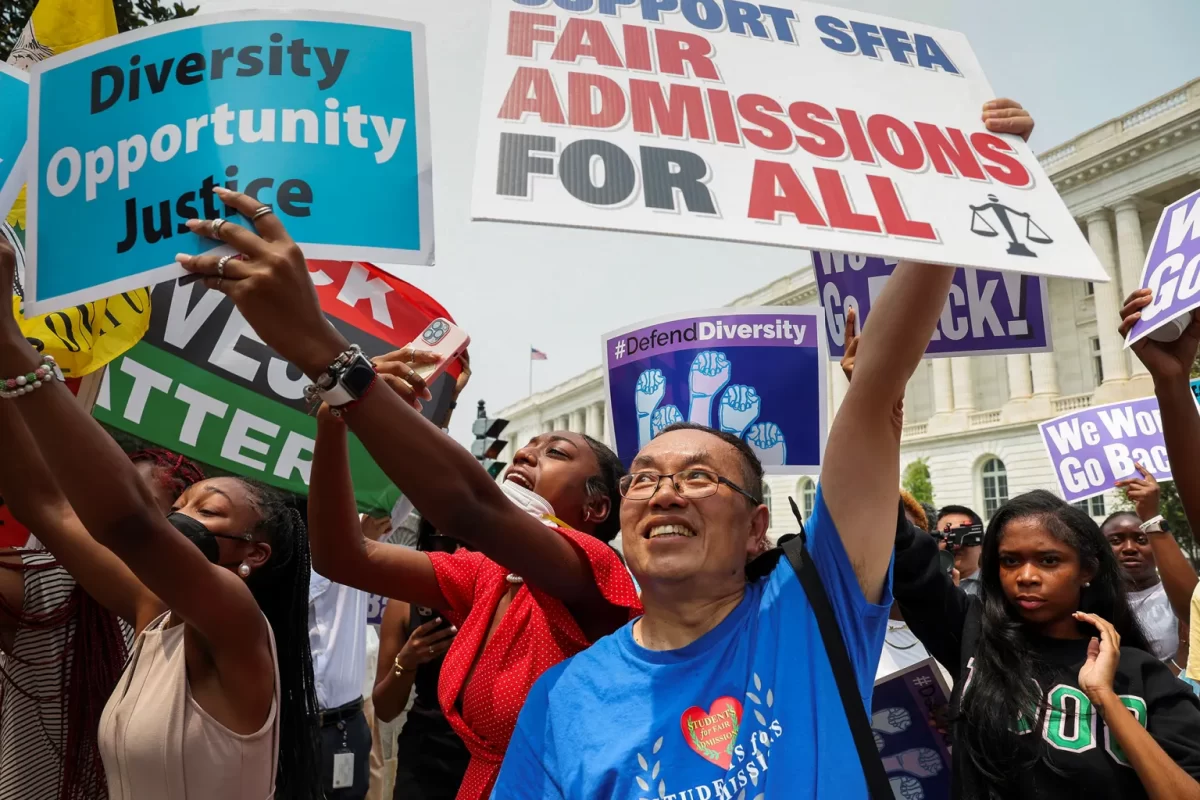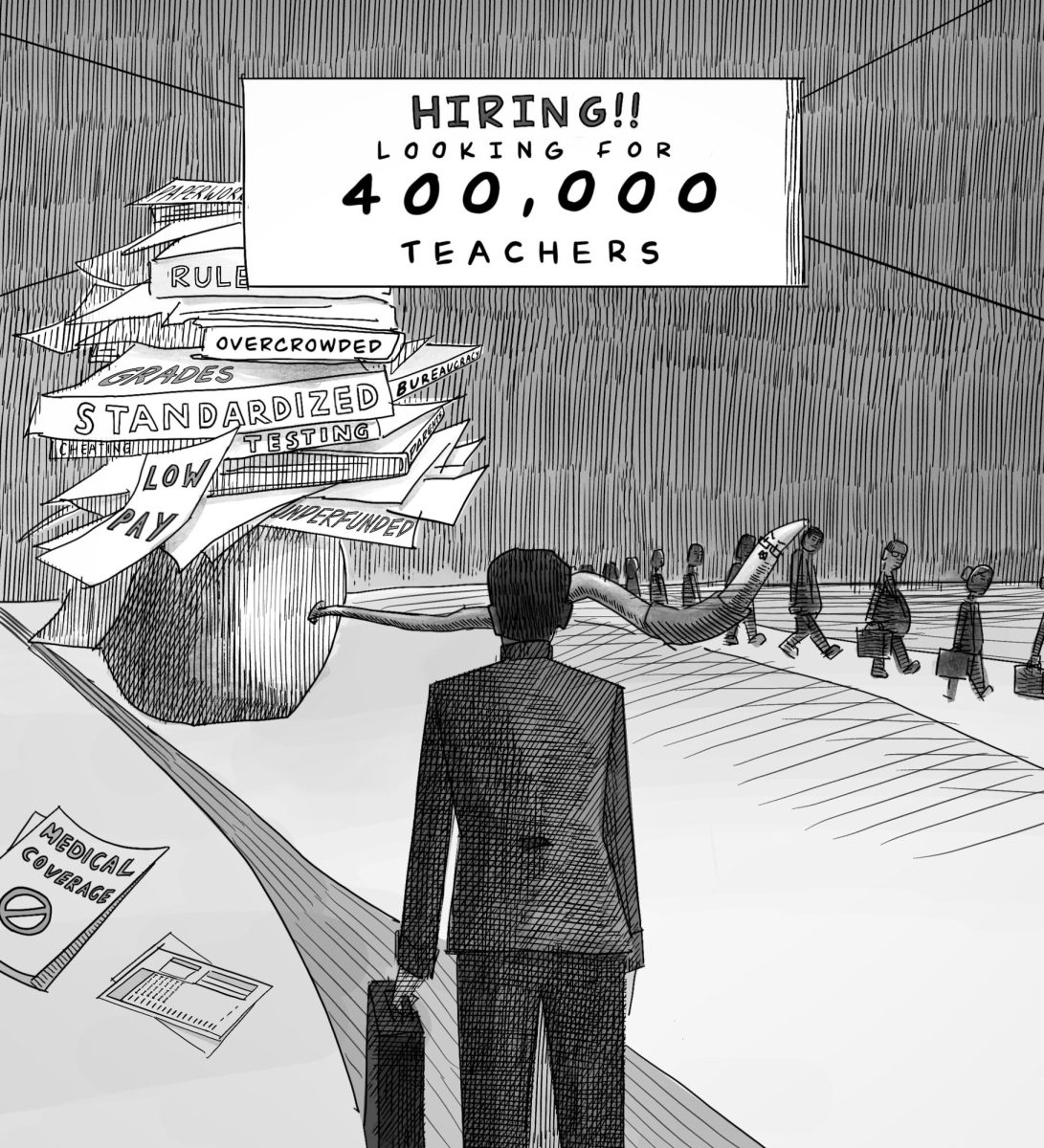Forty five years of precedent were overturned in a ruling that devastated millions of AmericansThe ruling in question were actually two rulings, Students for Fair Admissions (SFFA) V. Harvard and SFFA v. University of North Carolina. These two rulings decided that Harvard and UNC’s affirmative actions violated the fourteenth amendment’s equal protection clause. But should affirmative action be legal? In my opinion, this is not a question of morality but a question of equity. Schools that receive taxpayer dollars should prohibit affirmative action, but private schools do not have to.
The goal of affirmative action isn’t an ill intentioned one. It aims to address racial gaps and inequalities in education, by offering historically disadvantaged groups with more opportunities for academic success. This often takes the form of ‘holistic admissions,’ where race and other factors are considered while making college decisions, but this often lingers on the edge of racist policies, with race being prioritized over merit.
All taxpaying citizens should have equitable access to publicly supported institutions, such as state-funded colleges and universities. Taxpayers anticipate that all government services, including those provided by publicly financed schools, will be properly divided across the whole society when we pay taxes. These institutions should provide equal opportunity to every person, regardless of background, as they are supported by our tax funds. This is especially true given the substantial amount of taxpayer money granted towards funding higher education. According to the Federal Government’s National Center for Education Statistics, in 2021, the US government spent almost 175 billion dollars on post-secondary education. Affirmative action and other policies like it prevent people who pay taxes and thus have a right on the services provided by the government, from accessing these services, purely based on their background.
Many people argue that affirmative action for welfare is no different than social welfare programs that help poor people. However welfare actions like these only help people in severe need and establish a security net for those who lack things like food, shelter, and healthcare, as well as other basic needs. Education however, at least when government funded, exists as a public good, and is an investment in human capital to benefit society as a whole. As a public good it is detrimental to universal accessibility by making policies that prioritize one group over the other just on inherent characteristics like race.
However, private businesses, including colleges or universities that don’t receive funding from the government, deserve the right of freedom of association. Under the First Amendment of the Constitution, this right is protected, showing its importance to this nation. Freedom of association allows business and people to do business with people they please. It allows people to leave or join groups as they please, but also allows the group to decline membership on their discretion. The only problem is that many court cases, especially Runyon v. McCrary, which made segregated schools illegal, have limited the power of the First Amendment, making it so that other than marriage, race can not be used in the making of most private contracts. But should that be the case? As Humans Rights House explains, freedom of association is one of our fundamental human rights. It is one of the fundamental principles of our democracy, and it is important to not infringe on an individual’s autonomy.
The rights of these institutions must be upheld, even if doing so leads to certain unethical decisions. Something shouldn’t be unlawful just because it isn’t always morally correct. For instance, while being morally wrong, hate speech is permitted (as long as it isn’t used to incite violence) in our country since freedom of speech is one of its founding principles. A similar argument can be made for the fact that even if it may be morally wrong, businesses and individuals should have the right to associate with whoever they want. Even if some people may find the group’s decision in membership controversial or offensive, it doesn’t mean it should not be allowed.
Even with this current court ruling, it is likely that affirmative action will continue to be a contentious and polarizing issue for the near future. People will continue to debate the morality of it, and both sides make fair points. Those in favor will maintain that it is necessary for reparations and equity, while those opposed will claim that it is racial and discriminating. However, maybe it is more prudent to examine the underlying issue behind the argument rather than discussing its morality: why do we require affirmative action? Because of the underprivileged racial groups that exist in our society. Perhaps resources would be better diverted to attempt to resolve those issues to try and create a fair and equitable playing field for all trying to succeed in their academic career.












